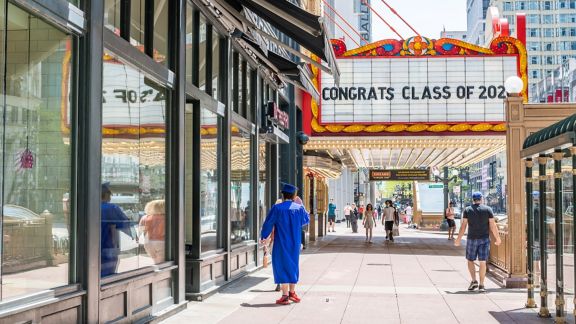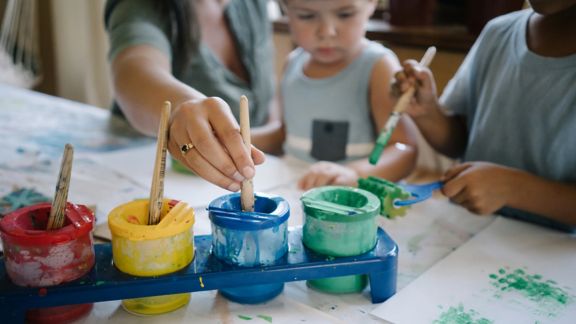National Survey of Students’ Personalized Learning Experiences

Problem
Personalized learning strategies are common, but research on them isn’t common enough.
Personalized learning strategies are used nationwide. However, there needs to be more comprehensive, systematic information about how such learning strategies are implemented. The International Association for K-12 Online Education (iNACOL), now the Aurora Institute, focuses on improving student learning through next-generation, competency-based education and personalized learning. The association sought to better understand the variation in student experiences with personalized learning strategies (including learning-focused, learner-demonstrated, and learner-led) to better meet its mission.
Solution
NORC surveyed students in grades 5-12 about personalized learning.
iNACOL commissioned NORC at the University of Chicago to conduct a nationwide survey using the LEAP Innovations personalized learning program survey as a basis. LEAP is a national survey of how students learn in school, how learning works in their classrooms, and how students experience teacher efforts. LEAP aims to improve classroom experiences and learning and ignite educational potential.
NORC conducted a nationally representative survey of students in grades 5-12 to assess their experiences with personalized learning. NORC refined the LEAP survey instrument and administered the resulting web-based survey to more than 1,300 children.
Result
The survey found more than half of students rarely or never had a choice about what to study.
The student survey provided iNACOL with insights into how students perceive their learning experiences in relation to their teachers, such as:
- About 50 percent of students agreed a lot or mostly agreed that their teacher knows what the student is interested in and that their teacher knows how the student learns best. This was especially the case for students in lower grades.
- Only 20 percent of students agreed that their teacher would let them skip topics they already understood.
- Students generally reported at least some experiences with having choices of which learning activities they would do in school, but more than 50 percent reported having these opportunities rarely or never.
The survey allowed for greater understanding of student learning experiences, allowing iNACOL to target their support to better meet their mission.








